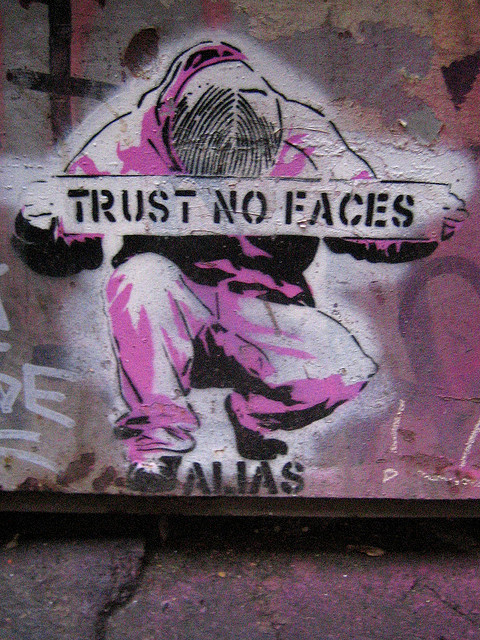
I’m taking a leadership course at work at the moment, and this week we spent time discussing The Five Dysfunctions of a Team (Amazon). I’d recently read Overcoming the Five Dysfunctions of a Team (Amazon) so it was interesting to hear what other people thought of the concepts.
There’s a pyramid of things – Inattention to Results, Avoidance of Accountability, Lack of Commitment, Fear of Conflict, Lack of Trust (I can’t find any images licensed for re-use, but Google Image Search is your friend here).
Trust is the base of the pyramid. When I read Overcoming the Five Dysfynctions, there was this focus on vulnerability that I didn’t quite get. However, trust being at the base – this makes complete sense to me. Lack of trust destroys everything.
When you don’t trust someone, it’s obvious. If you have to rely on them, you’re bracing yourself for their failures. But I think often people just avoid interacting with people they don’t trust, I know I do. You’re more critical, more alert to mistakes.
And when someone doesn’t trust you, it’s so difficult to interact with them. You second guess yourself. You’re resistent even to comments that you later, on reflection, find reasonable. In short, feeling untrusted is a productivity killer.
Some people find the code review process we have crazy. But, I think it all comes down to trust. I’m going to send you a code review, and trust that you’ll be reasonable, and timely, and helpful. When you receive my code review, you’re going to trust that I know what I’m doing, and that I’ve thought things through. That trust means that you’ll look for improvements, not things to nitpick for the hell of it.
Trust means that if you make a suggestion that I’ve considered and rejected, you are not casting a slight on my decision making process. Trust means that if you suggest an option I haven’t considered, this doesn’t not imply that I’m an idiot.
Trust means that we both have different information and knowledge, and we’re going to take the opportunity to share and learn.
Without that trust, yeah, code reviews would be crazy. But if it’s there, it’s the best learning process I’ve encountered.
Fascinating to consider how that one process has an insight into your entire team dynamic.

2 replies on “Trust and Team Dysfunction”
Hi Cate,
Nice post … LIKE +
Hope you are keeping well.
A great book on functional organizations is Stephen Coveys’ Principled Centered Leadership.
Levels of functionality and key characteristics according to that book are:
Organizational – Alignment
Managerial – Empowerment
Inter-personal – TRUST
Person – Trustworthy
Thanks Ian! Sounds like a great book – ordered 🙂 thanks for the recommendation!